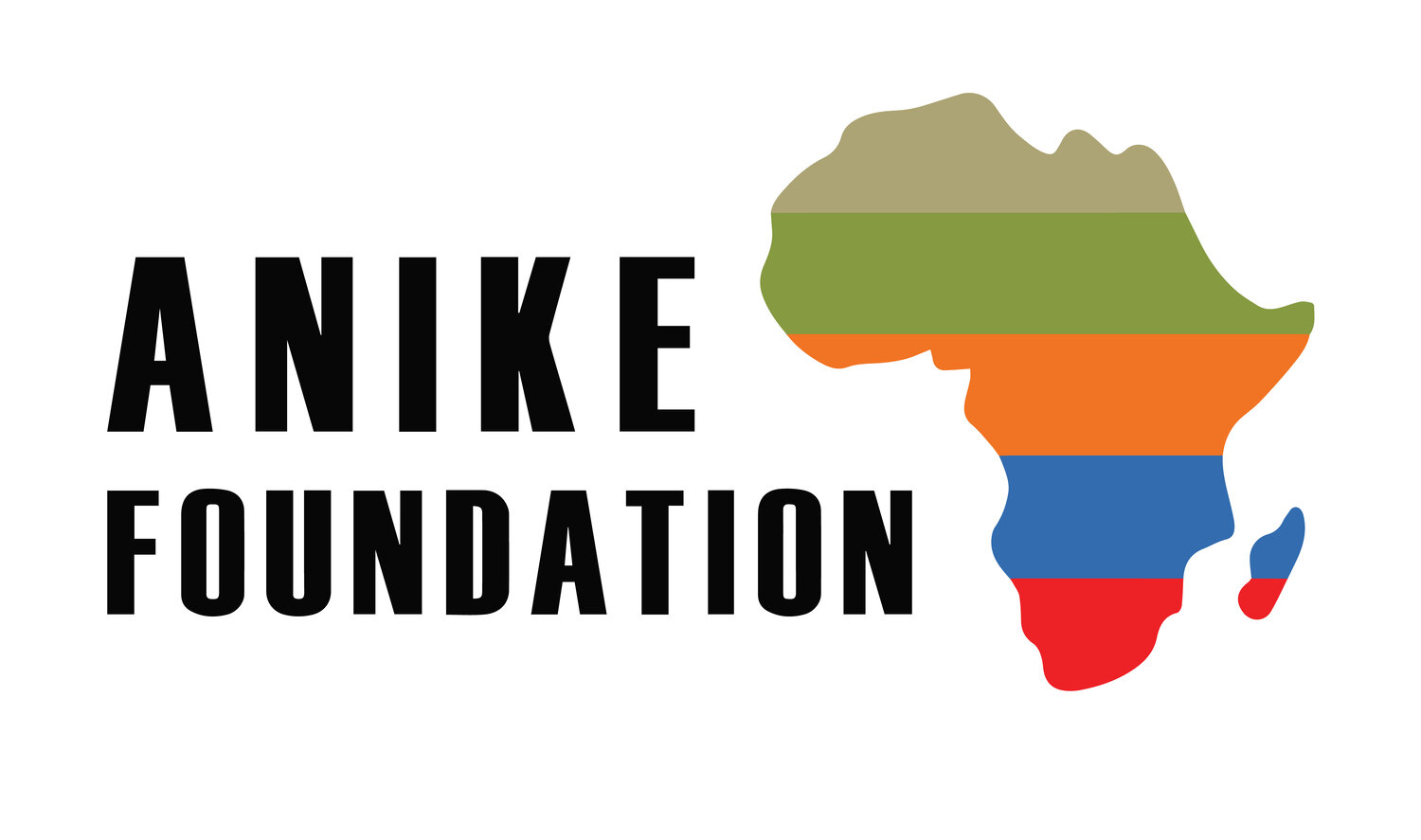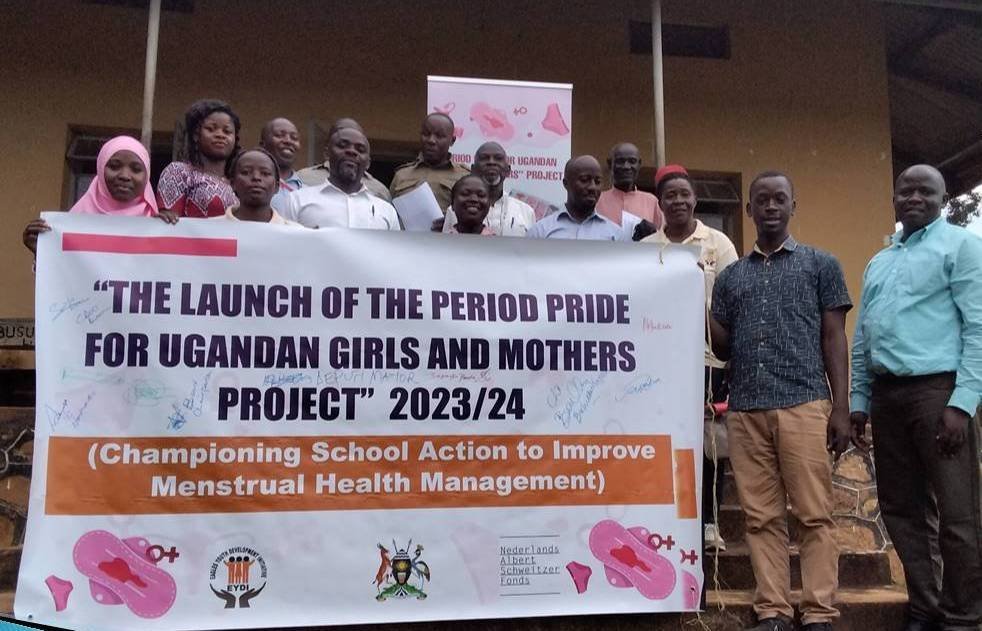ANIKE FOUNDATION HELPS EAGLES YOUTH DEVELOPMENT INITIATIVE LAUNCH THE PERIOD PRIDE FOR UGANDAN GIRLS AND MOTHERS PROJECT
Every month, millions of adolescent girls around the world struggle to access the materials and facilities they need for menstrual health management. This lack of access often subjects girls to stigma, harassment, and social exclusion. Unfortunately, the impact is far-reaching. Women and girls without proper support during menstruation face restricted mobility, low school attendance, reduced participation in community life, heightened safety concerns, and increased stress and anxiety. In Uganda, 65% of girls and women are unable to manage their menstrual health (MH) needs, and almost 25% of secondary female students drop out of school after they start menstruating [Onewater, Uganda Snapshot].
To address these challenges, interventions are crucial. Fortunately, with grant writing support provided by Anike Foundation, the Eagles Youth Development Initiative (EYDI) was awarded a grant from Nederlands Albert Schweitzer Fonds (NASF) to implement the Period Pride for Ugandan Girls and Mothers project. This project provided valuable school-based menstrual health education, supplies, and facilities to improve the well-bring of girls and women in the Wakiso District.
WHO IS EAGLES YOUTH DEVELOPMENT INITIATIVE?
The Eagles Youth Development Initiative (EYDI) is dedicated to empowering children, adolescents, and women in Uganda. Established in 2002, EYDI works to enhance access to education, health, water, sanitation, and hygiene. The organization creates platforms for adolescents to discuss critical issues such as risky sexual behaviors, drug and substance abuse, unplanned teenage pregnancies, and menstrual challenges. These efforts contribute to the overall well-being of not only individuals, but also families and communities.
WHAT IS THE PERIOD PRIDE FOR UGANDAN MOTHERS AND GIRLS PROJECT?
From September 2023 to August 2024, the Period Pride project provided reusable sanitary pads and supplies, reduced menstrual stigma, enabled diverse leadership, and changed school and community environments by creating safe spaces to promote menstrual equality for all girls and women to attain their full potential.
IMPLEMENTATION
Extensive training was conducted for key stakeholders, peer educators, teachers, and health workers to mobilize and strategize the project implementation. This involved reflection, group work, presentations, brainstorming, role plays and demonstrations.
Stakeholders made valuable recommendations, including the construction of changing rooms to allow females to manage their menstrual periods safely and privately. They also advised on peer-to-peer educator training procedures and introduced kits containing menstrual health messages. Peer educators played a vital role in reducing period-related discrimination and stigma among their peers, teachers, health workers, and community leaders. They advocated for changes in menstrual health management policies, such as increasing budget allocations to create safe spaces to promote menstrual equality for all girls and women. Much of the work done by stakeholders, peer educators, teachers, and health workers will continue to benefit women and girls in Wakiso District, Uganda.
SUSTAINABLE RESULTS
Formation of Two New Menstrual Health Clubs
School menstrual health clubs were formed at Damali Nabagereka Primary School and Kijjudde Primary School to create a sustainable system for peer-to-peer menstrual health education. They engaged the entire school community in good menstrual health management practices. Both clubs also provided girls with unlimited information on menstrual health and educated boys to eliminate the stigma surrounding menstruation. Club members elected leaders to ensure the continuity of menstrual health education through activities such as sports, debates, storytelling, poetry, and drama. These clubs offer a safe space for girls and boys to foster life skills and build confidence, resilience, leadership, and conflict resolution tactics while promoting menstrual equality and ending period stigma.
New Equipment and Training Facilitated the Ability to Create Reusable Sanitary Pads
Production units for sewing reusable menstrual pads were established in each school with the procurement of seven sewing machines and necessary tools and materials to create pads. After training 25 parents and caregivers from both schools on how to use the equipment and materials to create pads, more than 200 female students (and rising) now use reusable sanitary pads and have been trained in their safe and hygienic cleaning and storage.
Parent/Teacher/Child Engagement on Menstrual Health Concerns Improved
The Period Pride project improved engagement among parents, teachers, and children regarding menstrual health concerns. Parents reported improvements in children’s personal hygiene, and trainees were awarded certificates following positive outcomes in post-assessments, indicating enhanced understanding of body changes, safe sexual practices, and menstrual health management.
The sustainable benefits were clear throughout the communities. One mother of a project participant stated, “I wish to express gratitude to EYDI and NASF for the menstrual health management training. My daughter shared with me some of the topics covered like puberty, menstruation, menstrual health infrastructures and sanitation facilities. This training was a turning point in my life and created a platform for me to start a discussion about menstruation and body changes with daughters at home.”
Another parent spoke on behalf of a male beneficiary, stating, “These days my son bathes before going to school, which he did not before the training. I wish to thank the period pride project for this training that has resulted in improved personal hygiene.”
FINAL THOUGHTS
Thanks to Anike Foundation, Nederlands Albert Schweitzer Fonds, and the hard work of the Eagles Youth Development Initiative, the Period Pride for Ugandan Girls and Mothers project was a success, but more help is needed. Girls should be able to manage their menstruation hygienically, safely, and privately with dignity. EYDI’s work to end period inequality can continue to expand to more communities with further support. Please consider assisting EYDI’s efforts to eliminate menstrual stigma and discrimination and improve menstrual health by clicking the 'Donate' button in the footer below.


